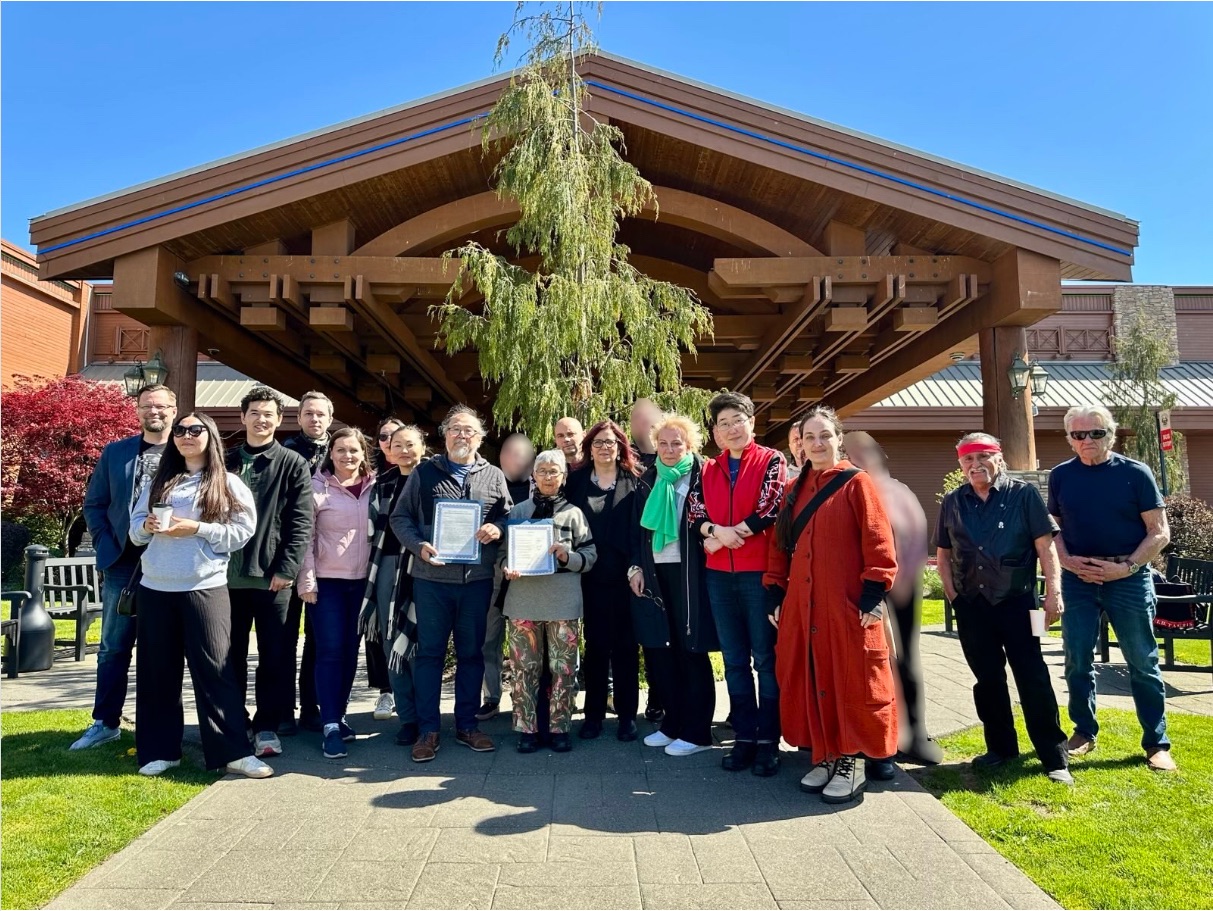Historic International Conference on Indigenous Peoples of the North, Siberia, and the Russian Far East Held on Orcas IslandInternational Conference on Indigenous Peoples of the North, Siberia, and the Far East and the Future of Russia Held on the Island”) reports on a recent international conference focused on the rights and future of Indigenous peoples in Russia’s northern regions.

From April 14 to 17, 2025, a historic international conference took place on Orcas Island, Washington State, USA, on the traditional lands of the Lummi Nation. The event focused on the current situation and future of the Indigenous peoples of the North, Siberia, and the Russian Far East in contemporary and post-Putin Russia. It was organized by the Batani International Foundation, the International Committee of Indigenous Peoples of Russia, the Indigenous Russia platform, and Russian-Speaking America for Democracy in Russia.
The conference brought together Indigenous representatives from Russia’s northern regions, members of Russian civil society, scholars, politicians, human rights defenders, activists, journalists, and international partners. Together, they engaged in open dialogue on Indigenous rights, Russian imperial policy, decolonization, and the democratic future of Russia. A cornerstone of the event was the adoption of a landmark document titled the Orcas Island Declaration: A Statement of Reconciliation and Respect.
April 15 – Day One
The first day featured four key sessions:
- The Situation of Indigenous Peoples of the North, Siberia, and the Far East
Representatives of the Itelmen, Sámi, Dolgan, Udege, Shor, and other Indigenous groups shared accounts of the rights violations and challenges faced in their regions. - Contemporary Challenges
This session addressed the effects of repression, rights violations, and environmental exploitation, along with insights from international institutions on legal protection and advocacy. - The Future of Russia: Decolonization and Self-Governance
Experts discussed possible models for a post-imperial Russian state that would respect Indigenous rights and self-determination. - Collaboration with Pro-Democracy Movements
Participants reviewed the current state of cooperation between Indigenous organizations and Russia’s democratic opposition, proposing practical steps to strengthen dialogue and coordination.
April 16 – Day Two
The second day was devoted to the collective development of the conference’s final document. After intensive discussions and consultations, participants adopted the Orcas Island Declaration: A Statement of Reconciliation and Respect.
Adoption of the Orcas Island Declaration
The declaration serves as a foundational document that:
- Condemns colonial policies, forced assimilation, and repression against Indigenous peoples in Russia;
- Emphasizes the need to restore historical justice;
- Commits to collaboration with democratic forces for a future based on equality and human rights;
- Calls for the creation of a permanent dialogue platform;
- Sets concrete goals, including monitoring rights violations, offering legal assistance, developing legislative initiatives for Indigenous rights and land/resource protection, and advancing research and education projects.
Inspired by reconciliation efforts in Canada, the U.S., Australia, and Norway, the declaration urges Russia to undertake a similar path—acknowledging its colonial legacy, restoring respect for Indigenous communities, and enacting institutional reforms. The document is more than a conference outcome; it is a moral and political guidepost for those advocating for the rights of Russia’s Indigenous peoples.
In the afternoon, the Lummi Nation hosted a community event for conference participants and residents. Speakers included representatives of the Native American organization Se’Si’Le, as well as Pavel Sulyandziga, Tyan Zaochnaya, and Vladislav Inozemtsev. This gathering symbolized international solidarity and underscored the shared histories of colonization and the global movement for Indigenous rights.
April 17 – Day Three
On the final day, conference participants visited the Lummi Nation reservation and met with members of the Tribal Council. This visit was both a gesture of respect and gratitude and a first step toward building a lasting partnership between Indigenous peoples of Russia and the United States.
The conference marked a significant milestone toward envisioning a new Russia—democratic, inclusive, and respectful of every nation’s right to self-determination and dignity.